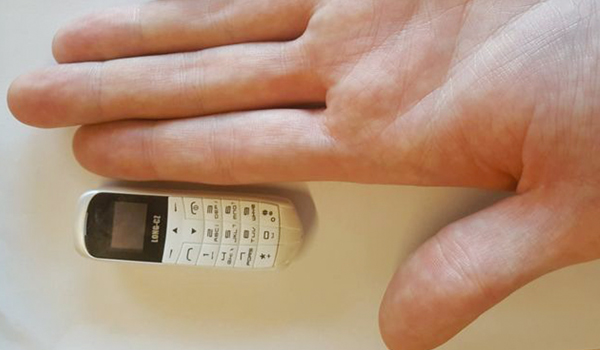Calling time
As justice ministries around the world wrestle with the challenge of stopping the criminality that emanates from within prisons, Police Professional looks at what is being done to control illegal communications.
As justice ministries around the world wrestle with the challenge of stopping the criminality that emanates from within prisons, Police Professional looks at what is being done to control illegal communications. Mobile phone use in prisons is escalating with inmates regularly making unauthorised calls, or taking pictures and videos and posting them on social media sites. Many uploads have been viewed tens of thousands of times and show prisoners playing pranks, smoking drugs and fighting. Some sites have even run competitions for the best prison selfie. Last week Arthur Collins, the former boyfriend of reality television star Ferne McCann who was jailed for 20 years after being convicted of throwing acid across a crowded nightclub, appeared at Woolwich Crown Court after being found in possession of a Nokia mobile phone, two Sim cards and two memory sticks, which were hidden inside a crutch. He was given a further eight-month prison sentence. A few days later prison authorities launched an investigation after it emerged that the Instagram account of Scott Stubbings, currently serving 13 years for a violent assault on a mechanic, had been updated five times since the start of the year. In December, the then Justice Secretary David Lidington called for a ban on the sale of miniature mobile phones, many of which appear to be targeted specifically at those going into the prison system. Many jails use a scanning device known as the BOSS (Body Orifice Security Scanner) to search prisoners, but the new generation of miniature phones are being sold with the promise that they will not be detected. Dubbed Beat the BOSS phones, the tiny, virtually metal-free handsets some of which are no larger than a lipstick can be bought for £25, but are reportedly changing hands for up to £500 among inmates. There were 20,000 illicit phones and Sim cards recovered by prison guards in 2016 and it is estimated that at least a third of the phones fell into this category, according to the Ministry of Justice (MoJ). Its pretty clear that these miniature phones are being advertised and sold with the purpose of being smuggled, said Mr Lidington. I am calling on online retailers and trading websites to take down products that are advertised to evade detection measures in prisons. The MoJ insists it is taking measures to increase the number of searches, but while a £2 million investment package announced last July includes plans for 2,500 additional staff, it does nothing to move forward a decade-old plan to install signal blockers to make mobile phones unusable within prison walls. In 2016 it emerged that a £1.2 million pilot project to block mobile phones in two Scottish prisons had been abandoned after inmates developed what officials described as innovative counter-measures to circumvent the phone blocks. Precise details of how the inmates achieved this have not been made public, but it is known that the number of mobile phones being used in the prisons during the pilot scheme actually increased as inmates learnt they could use the more sophisticated phones to get around the blocking technology. In turn, officials suggested this led to debt and bullying among prisoner groups as the business of renting out these handsets to prisoners appears to be increasing. A report into the trial also explains that the technology could not be used in prisons in urban areas where there were better mobile phone networks and more members of the public living nearby. Officials originally intended to trial the phone blocker technology at HMP Edinburgh, but the risk that people passing close to the prison would also have their phone signals blocked was deemed a high risk early on in the project. The system was also commissioned to block only 2G and 3G mobile signals, but the next generation 4G signal was already available in Edinburgh at the start of the trial. To mitigate this risk, the pilot was conducted in two more rural prisons, HMP Glenochil and HMP Shotts, instead. Despite this, the repo


